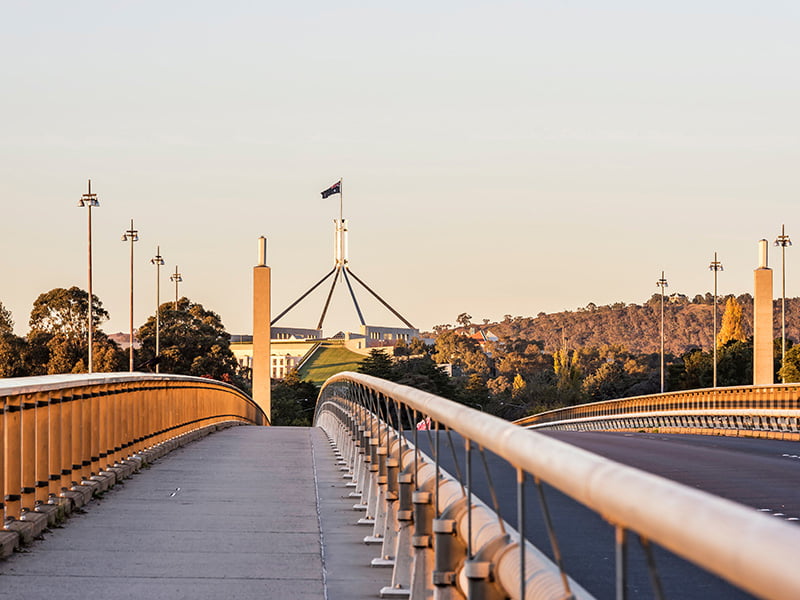Large incumbent companies that donate to Australia’s political parties are winning a disproportionate share of government tenders, according to new research into the explosion of contracting over the last decade.
The advantage is distorting competition, including stopping smaller innovative firms from landing what is now $190 billion in annual government work, according to the report from economic research institute e61.
The findings come as scrutiny on government procurement intensifies and as consultants concede donations have given them access to “policy directions” as they pull in record government work.

On Friday, e61 published its research into the market and influence on government contracts, led by research director and former senior executive at the federal Treasury Dan Andrews.
“This report should raise some eyebrows, particularly in the wake of recent scandals where these ‘insider’ organisations have used their political connections to benefit themselves in illegal or improper ways,” he said.
According to the report, the value of government contracts expanded from $33 billion in 2014 to around $190 billion in 2022.
The jump comes with a growing preference to favour older and larger firms, the study found.
A business with a previous contract was far more likely to win another over a newcomer — in 2022, 75 per cent of the value of government contracts went to firms that had won a contract in the previous year — and firms which donated to political parties won disproportionately more government work.
“It shouldn’t be too surprising that large firms are getting more business than their smaller competitors, but even when you take that into account, our research shows that firms that make political donations are increasingly able to more easily secure contracts across the board,” Mr Andrews said.
Less than two per cent of government contract winners made political donations, but the donors are winning a disproportionate share of contract value – around eight per cent last year.
Causality between donating and winning contracts is not proved, but the study found a relationship does appear to exist and “the positive relationship between donor-status and contracts won is becoming stronger over time”.
In 2014, being a donor was associated with winning around $1.5 million more in contracts compared to non-donors. In 2022, it had jumped to $11 million more.
The evidence of a link between donations and government contracts comes as scrutiny intensifies on some of Australia’s biggest and most controversial government suppliers.
In the wake of the PwC tax leaks scandal, where the large, heavy donating consultancy misused confidential government information, the entire industry is being scrutinised.
The current federal inquiry into the consultancy industry has uncovered a large increase in the biggest firms’ revenue share coming from public sector clients and questioned their practice of donating to both sides of politics.
The Big Four consulting firms donated nearly $860,000 to the Labor and Coalition parties during the last year’s federal election.
EY executives this month said the company does not make direct monetary donations to political parties. But its indirect donations through memberships and sponsoring and hosting events to the tune of more than $220,000 last financial year gives it access to “policy direction”.
“That gives us some idea of policy direction in the future by both political houses so we can start to actually understand what skills and experience we need that will be taken forward in the policy of the government of the day when they come forward,” EY’s Australian government lead Mark Nixon told the inquiry.
The inquiry has revealed fellow Big Four consultancies are also big donators in their record setting year for government work. Deloitte estimated it will have donated around $156,000 to the major parties through similar sponsorships and in-kind contributions.
KPMG said it donated $242,455, while PwC said its figure is almost $354,000 through a mix of sponsorships and direct or in-kind contributions.
Former Australian Competition and Consumer Commission Chair Professor Allan Fels said donations should be banned as part of a forced break up of the big firms auditing and consulting businesses
“They [donations] look unhealthy,” Professor Fels told the inquiry this month.
“What I would favour is a significant restriction and possibly a ban for some time. Indeed, what I think is that governments and legislators should come down very hard on the industry, almost too hard at the beginning, rather than leaning over to the soft side. Then let things evolve over time to get the right balance.
“It’s better to start with some tough approaches, like break-up, but also restrictions on donations maybe for several years and so on. The donations seem to be linked with buying influence. I don’t think the donations reflect any kind of ideological commitment by the accounting firms. They’re an investment to get a return, and that makes us very worried about them.”
Join InnovationAus.com and Tendertrace for this Canberra-based ‘Making sense of procurement data for Government’ demonstration, tailored specifically for government procurement teams. You can reserve you seat here.
Do you know more? Contact James Riley via Email.

